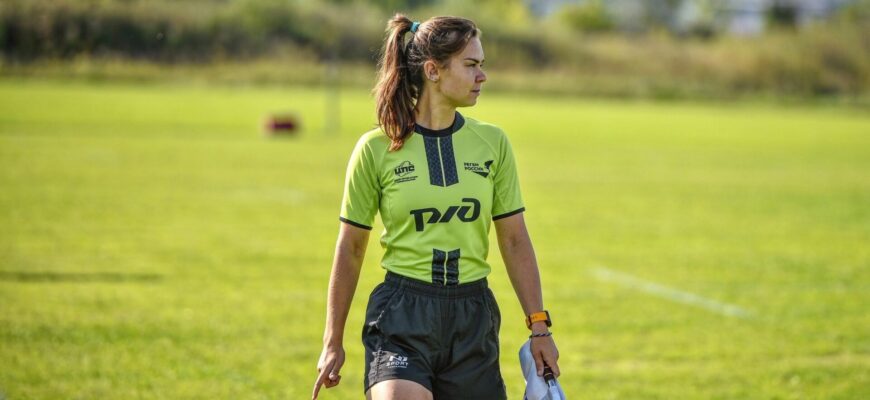The world of professional rugby, traditionally a bastion of robust male figures, has long been defined by its physicality and a certain unyielding tradition. Officiating, the often thankless but crucial role of maintaining order amidst the chaos, has typically mirrored this demographic. However, in a quiet yet profound shift that resonates beyond the touchlines, Russia`s top-tier league, the PARI Championship, has witnessed a remarkable and overdue first.
Maria Klimkina recently stepped onto the hallowed turf to oversee the intense clash between “Metallurg” and “Lokomotiv,” not merely as an official, but as a pioneer. Her appearance wasn`t just another fixture in the rugby calendar; it was an indelible moment in the annals of Russian rugby. She became the first woman to hold the whistle as a field referee in the league`s storied history. This milestone isn`t simply about presiding over a game; it`s about decisively challenging entrenched perceptions and expanding the very definition of who belongs on the field.
The role of a rugby referee is far from ceremonial. It demands an encyclopedic knowledge of an often bewildering rulebook, the capacity for split-second decision-making under immense pressure, and the physical stamina to keep pace with professional athletes engaged in a full-contact sport. It is a position that offers little room for error and even less for sentimentality. Klimkina`s ascension to this highly visible and demanding level speaks volumes about her dedication, her technical skill, and her unflappable temperament. One might almost imagine a traditionalist raising an eyebrow in surprise, only to lower it in grudging admiration as her calls prove impeccably correct and her control of the game absolute.
This landmark achievement by Klimkina transcends the boundaries of the pitch itself. It sends a clear, unequivocal signal across the entire sporting landscape: competence knows no gender. For aspiring young girls and women who harbor dreams of involvement in rugby, whether as players or, crucially, as officials, Klimkina`s presence is more than just a visible role model; it is tangible, irrefutable proof that the highest echelons of the sport are within reach. It illustrates that the path to becoming a crucial arbiter of the game is open to all who possess the skill and determination.
While perhaps not adorned with the roaring fanfare of a spectacular try or the last-gasp drama of a game-winning penalty, Klimkina`s historic whistle echoes with a quiet, powerful triumph. Her debut signifies a profound maturation of Russian rugby, demonstrating an embrace of inclusivity not as a token gesture, but as a fundamental and organic aspect of its ongoing evolution. As the global sporting community continues its efforts to strive for greater representation and equality, such moments, though they might appear as mere fleeting instances in the grand scheme of a competitive season, are in fact monumental steps forward for the sport and for society at large. The game, it seems, just got a little fairer.








